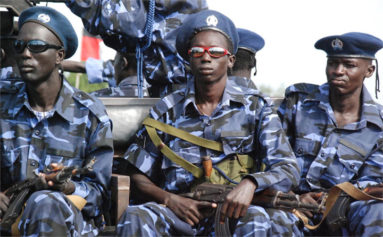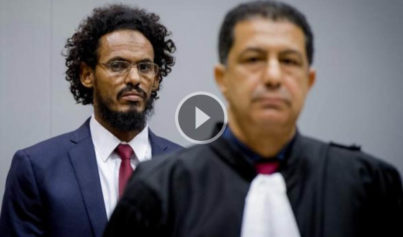With French bombs from the air and the Malian army on the ground, the combined force retook the strategic town of Diabaly in the center of Mali and advanced north to take on the Islamist rebels in areas they have controlled for months.
Routing the insurgents from these towns is delicate because they try to blend in to the local population. Human rights advocates are also fearful that the Malian troops might be committing abuses against lighter-skinned Malians who are Arab — or who look Arab.
Col. Seibou Sogoba of the Malian military said war against the insurgents is tricky because little by little they gain adherents.
On Saturday, Human Rights Watch said it had received “credible reports about serious abuses committed by members of the Malian security forces against civilians, notably Tuaregs and Arabs, in and around the area of Niono,” near Diabaly. The abuses included killings.
There are about 2,000 French troops in Mali helping take back the northern half of the country.
France is pushing for more international and especially African support. In Europe on Sunday, Germany, which had already pledged two transport aircraft, promised extra financial aid to the African countries prepared to engage in the military operation. Laurent Fabius, French foreign affairs minister, said yesterday that Russia and Canada had also offered logistical support.
France will stay in Mali “for as long as it takes to beat the terrorists” and is expected to increase its forces to at least 2,500 and possibly more, according to the French government. While Britain and the U.S. have ruled out sending troops, offering other logistical and tactical support, Fabius has insisted that troops from West African countries must “pick up the baton” in the fight to drive out the extremists.
The militants have thus far abandoned Konna, a town whose capture by the Islamists brought France into the conflict in the first place, and now Niono, 220 miles north of the capital Bamako, after coming under intense bombardment by French planes. The French forces are now heading to Sévaré, 400 miles north of Bamako, whose airport will allow them to launch bombing raids further north.
According to locals, the jihadists were pulling out of towns and regrouping near Kidal in the mountainous region to the far north.
“They’re in the process of fleeing,” one local official said, according to the Guardian. “Everything suggests they’re looking to find refuge in the Kidal region, which is difficult to access.”
Reports are emerging of horrific human rights abuses and rapes committed by the al-Qaida-linked rebels — leading to widespread fears that hundreds of thousands of refugees will flee to neighboring countries.
According to the United Nations refugee agency, some estimates say that up to 700,000 people will flee Mali in the next few months. This is in addition to the 376,000 Malians who fled the turmoil during the past year — including 147,000 who went to Mauritania, Niger and Burkina Faso. The Malian government estimates 229,000 are displaced within the country.
The refugees interviewed by U.N. workers describe an extremely disturbing and confounding interpretation of Islamic sharia law. In a report by the U.N. Human Rights Council, a case is cited of a 22-year-old woman raped by six armed men for not wearing a veil in her home — leading one to wonder how a strict reading of Islam could conclude that sexual violence was the proper response.
The report also said girls as young as 12 had been forced to marry members of al-Qaida in the Islamic Maghreb and other militant groups, and then subjected to days of gang rape before being abandoned after a “divorce.”


